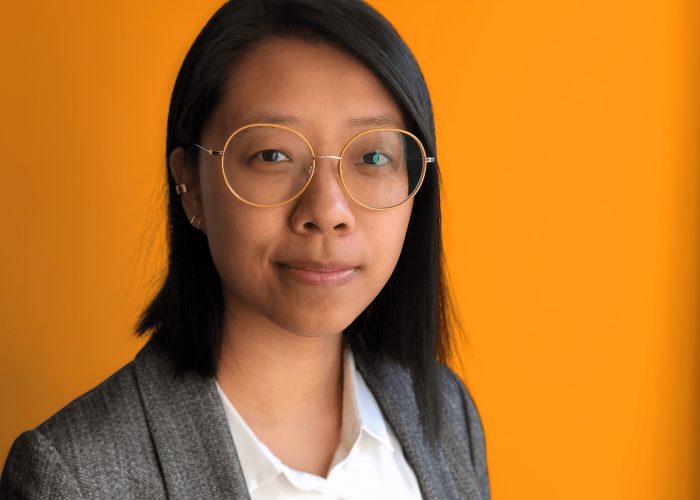
This morning, The Markup, the nonprofit investigative news outlet that covers big tech, announced that Sisi Wei will be its new editor-in-chief.
The Markup launched in 2020 (after some hiccups) to explore the societal impacts of technology and algorithms. It makes all its data and code public and has found interesting ways to report on what platforms won’t make public, through initiatives like the Citizen Browser project.
Wei, the co-executive director of OpenNews, succeeds founder Julia Angwin who is currently the Markup’s editor-at-large. Her first day is Monday, August 22.
1/ It’s official: I’m joining @TheMarkup as its new editor-in-chief! The Markup’s mission to hold powerful institutions to account — for how their technology shapes our society — is so critical, and I’m excited to bring all I’ve learned @opennews to that critical work. https://t.co/ug49qNAYgF
— Sisi Wei (@sisiwei) August 2, 2022
I caught up with Wei about how her experiences at ProPublica and OpenNews and founding the DEI Coalition Slack led her to The Markup. Questions and answers have been lightly edited for length and clarity.
As for why now — The Markup’s tech accountability coverage addresses one of the most important and urgent issues of our time. Technology is so ubiquitous in so many people’s lives, and the need to dig deep into what the technology we use everyday is actually doing, often without our actual consent, is more important than ever. What we often don’t think about is how tech accountability is also so many other types of coverage. It’s labor coverage, climate change coverage, healthcare coverage, criminal justice coverage, immigration coverage — I could go on and on, because every single system in our society uses technology and I guarantee you, uses it in a way that causes harm. And you can bet we’re going to unearth it.
As I approach my role at The Markup, I’m excited to use that knowledge to help The Markup build community, work collaboratively with other newsrooms and partners, and think deeply on how our reporting can hold institutions accountable in multiple ways.
When it comes to covering Big Tech, we also can’t limit ourselves to a small handful of powerful companies. It should also include, as The Markup’s coverage does already, the invisible tech companies with forgettable names that are selling data about where our children are, the algorithms that are becoming our literal bosses, and the app with glitches that ICE uses to track immigrants.
Also, while I absolutely have my own thoughts on what I think is high-impact coverage, by and large, the best pieces of impactful journalism don’t come from editors. They come from the reporters. As I work to shape and hone our coverage, I won’t be making any decisions without hearing from our reporters first about what they think is essential coverage right now.
Looking toward the future, it’s our job to build on that fantastic foundation. The Markup has proven that it can tell critical stories about technology, especially for lawmakers and regulators. I’m excited to add a bigger focus on the human impact of technology. In our investigations, in addition to what regulators can do, I want to invest an equal effort in telling the public how what’s happening impacts them and what they can do about it. On top of that, I’m excited to work collaboratively with other newsrooms and partners to make sure The Markup’s incredible journalism reaches audiences where they are, and to grow genuine and deep relationships with the communities that are being harmed by the wrongdoing we report on, and make sure that our work is truly serving and reaching them.
One of the key elements to creating a culture of belonging is trust, which also takes time to build and nurture. To ensure that we have a collaborative, psychologically safe, and equitable newsroom filled with a diversity of experiences and voices, the work and process is never complete. It can’t be, because The Markup and any other newsroom doesn’t operate in its own universe. We’re all affected by the world around us, and the way its systems and other people treat us. Until the world itself is an equitable place, I will never stop actively pursuing, engaging, and listening for better approaches to everything that we do — from both the team at the Markup and our colleagues across the industry.
Julia is The Markup’s founder and editor-at-large. She’s also worn so many different hats, from investigative reporter to editor to manager to founder of a startup, and more. Once I officially start my new role, we’ll talk in-depth and figure out what makes the most sense.
The challenges are also obvious. We’re about to hire, a lot, and fast, and we need to make sure we do it in a way that’s speedy but equitable, and doing it right is going to take up a significant amount of time, just from volume alone. It’s one of the reasons we’ve just started a brand-new jobs newsletter, for anyone who’s interested in working at The Markup and wants to be notified as soon as we post a new position. It’s extremely likely that we’ll be hiring editors, reporters, data journalists, journalist engineers, and more. We’ll be sharing the newsletter simultaneously to us figuring out all the details when I start, to help us make sure as many applicants as possible know about our jobs and are encouraged to apply.